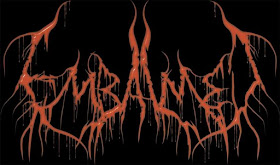The American Way of Death Revisited by Jessica Mitford, 1996, Excerpts
Of all the changes in the funeral scene over the last decades, easily the most significant is the emergence of monopolies in what the trade is pleased to call the “death care” industry. Of the three publicly traded major players – Service Corporation International [SCI], the Loewen Group, and Stewart Enterprises – SCI, incorporated in 1984, is the undisputed giant.
[Note: The Alderwoods Group formed after the Loewen Group emerged from bankruptcy on January 2, 2002. In November 2006, Alderwoods was acquired by Service Corporation International in a US$1.2 billion deal]
The Big Three of the corporate funeral world have been pitted in a worldwide race to buy up cemeteries with integrated undertaking establishments. Of the twenty-two thousand funeral homes in the United States, the vast majority are small operations doing somewhere between fifty and one hundred funerals a year. SCI entered this picture with the force of a hurricane, swept away the antiquated methods of the old-timers, and substituted “clustering,” the latest in streamlined mass production. Borrowing from the successful techniques of McDonald’s, where food preparation and management functions are centralized, SCI first buys up a carefully chosen selection of funeral homes, cemeteries, flower shops, and crematoria in a given metropolitan area. The funeral customer is totally unaware of the strategy of clustering because of the immensely successful SCI policy of anonymity.
The next step is to move the essential elements of the trade to a central depot. “Clustered” in this hive of activity are the hearses, limousines, utility cars, drivers, dispatchers, embalmers, and a spectrum of office workers from accountants to data processors, who are kept constantly busy servicing, at vast savings, the needs of a half dozen or more erstwhile independent funeral homes. Needless to say, the savings obtained via the cluster approach are not passed on to the consumer. SCI prices have risen sharply, with a targeted increase of 30 percent. Prices of the Loewen Group mortuaries tend to parallel those of SCI.
Zoellick Comments on the Funeral Business
03 Jul 2001
In a June 2001 speech to the right-wing Heritage Foundation in Washington, Zoellick made the case that there is no alternative to globalization and that U.S. companies and consumers were already benefiting in countless ways from this new wave of corporate-led economic integration. To drive his point home, Zoellick noted: “Even the funeral business has gone global, with a Houston-based company now selling funeral plots in 20 countries.”
2006 Form 10-Q
Over the long-term, we believe that our industry leadership, along with superior brand, reputation, financial strength and geographic reach, will result in expanded growth opportunities with the aging of the Baby Boom generation.
We believe we are well-positioned for long-term profitable growth. We are the largest company in the North American deathcare industry with unparalleled scale on both a national and local basis and are poised to benefit from the aging of America. We have demonstrated that we can generate significant and consistent cash flow, even in difficult economic times.
Worldwide, we have 1,417 funeral service locations and 381 cemeteries (including 218 funeral service/cemetery combination locations) covering 43 states, eight Canadian provinces, the District of Columbia, Puerto Rico, and Germany. Our funeral service and cemetery operations consist of funeral service locations, cemeteries, funeral service/cemetery combination locations, crematoria, and related businesses. We provide all professional services relating to funerals and cremations, including the use of funeral facilities and motor vehicles and preparation and embalming services. Funeral-related merchandise, including caskets, casket memorialization products, burial vaults, cremation receptacles, cremation memorial products, flowers, and other ancillary products and services, is sold at funeral service locations. Our cemeteries provide cemetery property interment rights, including mausoleum spaces, lots, and lawn crypts, and sell cemetery-related merchandise and services, including stone and bronze memorials, markers, merchandise installations, and burial openings and closings.



















